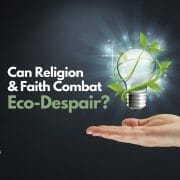The Gentle Art of Living Harmlessly

Living harmlessly involves making conscious choices that minimize harm to other living beings and the environment. It involves living a lifestyle that is sustainable and respectful of all living beings and the planet.
Living Harmlessly
You can’t live a healthy life on a sick planet. ~ John Replogle
Here are some ways to live harmlessly:
Practice veganism or vegetarianism: By choosing to eat a plant-based diet, you can avoid contributing to the harmful practices of the meat and dairy industries, which often involve the mistreatment of animals.
Reduce, reuse, and recycle: Adopting the 3Rs can significantly reduce your environmental impact. By minimizing your consumption and recycling what you can, you can help reduce the amount of waste that ends up in landfills and oceans.
Use eco-friendly products: Choose products that are made from sustainable and non-toxic materials. In addition, look for items that are biodegradable and use renewable energy sources. Choose sustainable transportation: Consider walking, cycling, or using public transportation instead of driving a car. If you need to drive, consider an electric or hybrid vehicle.
Conserve energy: Turn off lights and appliances when not in use, use energy-efficient light bulbs, and reduce your air conditioning and heating usage.
Practice mindfulness: By being aware of your impact on the environment and the well-being of others, you can make more conscious decisions that minimize harm.
Support ethical businesses: Choose companies that prioritize sustainability and ethical practices. Consider buying locally grown or fair-trade products, and support companies that have a strong commitment to social responsibility.
Living harmlessly is a way of life that values the interconnectedness of all living beings and strives to create a more peaceful and sustainable world.
A Sustainable Future
Harmlessness and sustainability are related concepts that are important in ensuring our planet’s well-being and its inhabitants’ well-being.
Harmlessness refers to the absence of harm or damage caused to living beings, the environment, or property. In other words, harmlessness is about avoiding actions that could cause negative consequences or harm to the world around us.
Sustainability, on the other hand, is about meeting the needs of the present generation without compromising the ability of future generations to meet their own needs. This involves taking a long-term view of resource management, environmental protection, and social equity.
Harmlessness is an important aspect of sustainability because actions that cause harm can undermine the ability of our planet to sustain itself over the long term. For example, using chemicals that are harmful to the environment or overfishing can damage ecosystems and reduce the availability of resources for future generations.
In contrast, sustainable practices are those that are designed to minimize harm and ensure that resources are used in a way that does not compromise their availability in the future. This includes using renewable energy sources, conserving water and other resources, reducing waste, and protecting biodiversity.
Harmlessness and sustainability are complementary concepts essential for creating a healthy and prosperous world for us and future generations. By practicing harmlessness and sustainability in our daily lives, we can help to ensure a more sustainable and equitable future for all.
Compassion and Cruelty-Free Products
“Harmlessness and cruelty-free” generally refers to products, practices, or actions that do not cause harm or suffering to animals, humans, or the environment.
For example, in the context of cosmetics, harmlessness and cruelty-free products are those that have not been tested on animals and do not contain any animal-derived ingredients. Similarly, in the context of food, harmlessness and cruelty-free food refer to food that is free of animal products and does not involve any animal suffering or exploitation in its production.
In broader terms, harmlessness and cruelty-free can refer to any action or practice that does not cause harm or suffering to anyone or anything, including the environment. This can include using renewable energy sources, reducing waste, and treating others with kindness and compassion.
The idea of harmlessness and cruelty-free has gained popularity in recent years as people have become more aware of the impact of their actions on animals, humans, and the planet. As a result, many individuals and companies now prioritize harmlessness and cruelty-free practices in their daily lives and business operations.
Ethics and Fair-Trade
Harmlessness refers to the quality or state of being without harm, injury, or danger. In the context of ethical and moral considerations, harmlessness is often associated with non-violence and non-aggression and the avoidance of actions that could cause harm to other living beings or the environment.
On the other hand, Fair-trade refers to an approach to trade that seeks to ensure that producers and workers in developing countries receive fair compensation for their work and that environmental and social standards are upheld in producing goods.
The concepts of harmlessness and fair trade are both rooted in ethical and moral principles and share a common goal of promoting justice and sustainability. By prioritizing harmlessness and fair-trade practices, individuals and organizations can work towards creating a more equitable and sustainable world.
For example, fair trade initiatives can help ensure that workers and producers are not exploited and receive a fair wage. In contrast, harmlessness practices can help to reduce environmental damage and promote the well-being of all living beings. Together, these principles can help to create a more just and sustainable global economy.
Click HERE to Connect with your Daily Horoscope on OMTimes!
Visit Our Astrology Store for Personalized Reports
About the Author
Beatrice Caffe is a columnist for OMTimes and Ministry Earth Magazines, the Brand Manager and Ambassador for the OMTimes Shopping Network, OSN, and a Conscious Influencer. OSN is a Soul Service Oriented program created by OMTimes Media and Broadcasting to bring honest reviews about products and services designed to impact our society positively. Learn more about our Product reviews on our website: omshoppingnetowork.net and on our Youtube https://www.youtube.com/@omtimesshoppingnetwork
OMTimes is the first and only Spiritually Conscious Magazine. Follow Us On Facebook, Twitter, Instagram, Linkedin, Pinterest, and Youtube
Beatrice Caffe is a columnist for OMTimes and Ministry Earth Magazines, the Brand Manager and Ambassador for the OMTimes Shopping Network, OSN, and a Conscious Influencer. OSN is a Soul Service Oriented program created by OMTimes Media and Broadcasting to bring honest reviews about products and services designed to impact our society positively. Learn more about our Product reviews on our website: omshoppingnetowork.net and on our Youtube https://www.youtube.com/@omtimesshoppingnetwork







